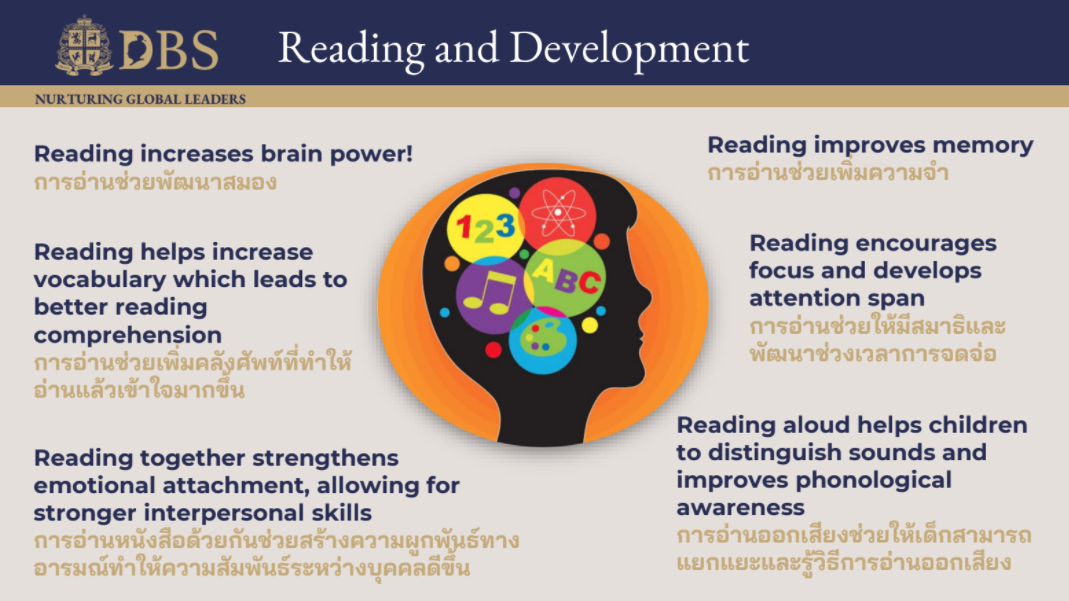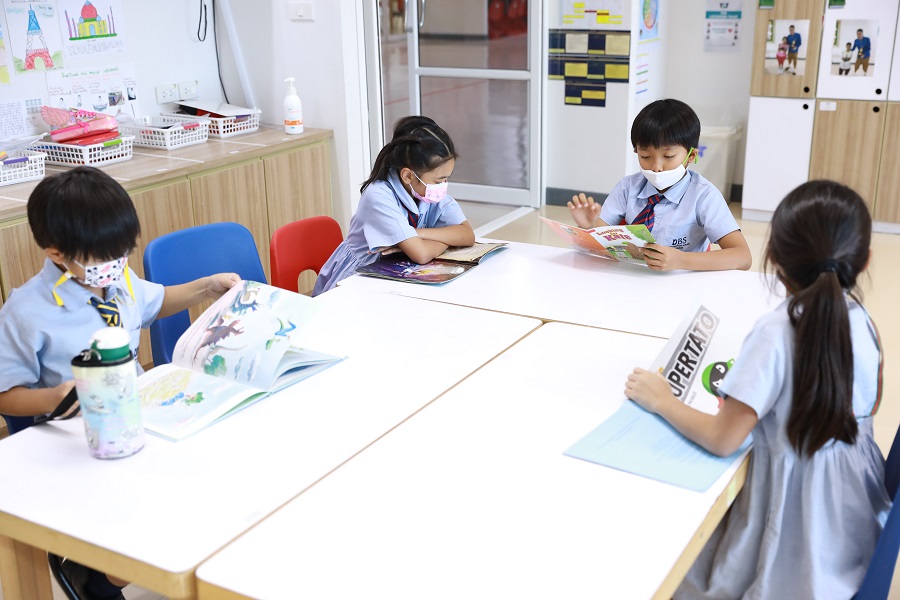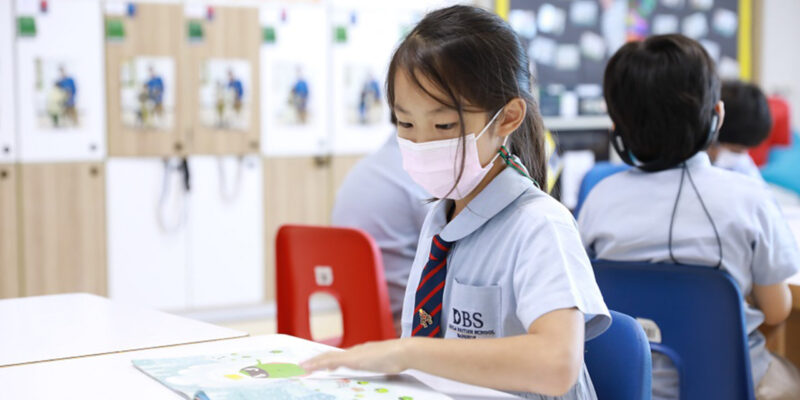In order for children to achieve in any subject at school, they need to be able to read.
At DBS, we believe that every child deserves success right from the start. Each child is on their own reading journey and that we celebrate the success of individual children at different times. Children are all unique and so too is their learning journey.

Why is reading so important?
- Creating a love of reading in children is potentially one of the most powerful ways of improving academic standards in school.
- It allows us to be transported from our own world into another!
- As such, teachers and parents are in a great position to ensure reading is a key part of children’s daily routine.
- Enabling children to become truly independent readers improves both a child’s chances in school and in the wider world. It gives a child access to so many things and so much information.

Reading consists of 2 dimensions
- Language Comprehension (necessary for both reading and writing)
- This starts from birth and only develops when adults talk with children about the world around them and the books they read with them.
- The ability to understand the meaning of the words and sentences in a text.
- The ability to understand the ideas, information and themes in a text.
- If a child understands what they hear, they will understand the same information when they read.
- Skilled Word Reading
- The ability to blend letter sounds (phonemes) together to read words.
- The ability to recognise words in and out of context.
- The recognition of familiar printed words. (Inside the reading record)

How do we ‘teach’ reading at DBS?
We follow a Synthetic Phonics Programme called Read Write Inc.
- Phonics
- Guided Reading
- Independent Reading
- Focused reading activities
- Library Time
- Class stories
- Children are taught phonics systematically
- Firstly, children are taught one way of reading and spelling the English sounds.
- We give children a hook to learn the sounds – a corresponding picture to match the letter sound. (s-snake, a-apple etc).
- Children are taught to blend these sounds to form words.
- Children read books that are matched to the spellings and sounds they have been taught.
- As children progress through the programme, more sounds are taught and more complex books are read.
- With their phonics knowledge, children can crack the reading code.

“We can work together to share our love of reading and develop your child’s reading ability to ensure they have a life-long love of reading.”




